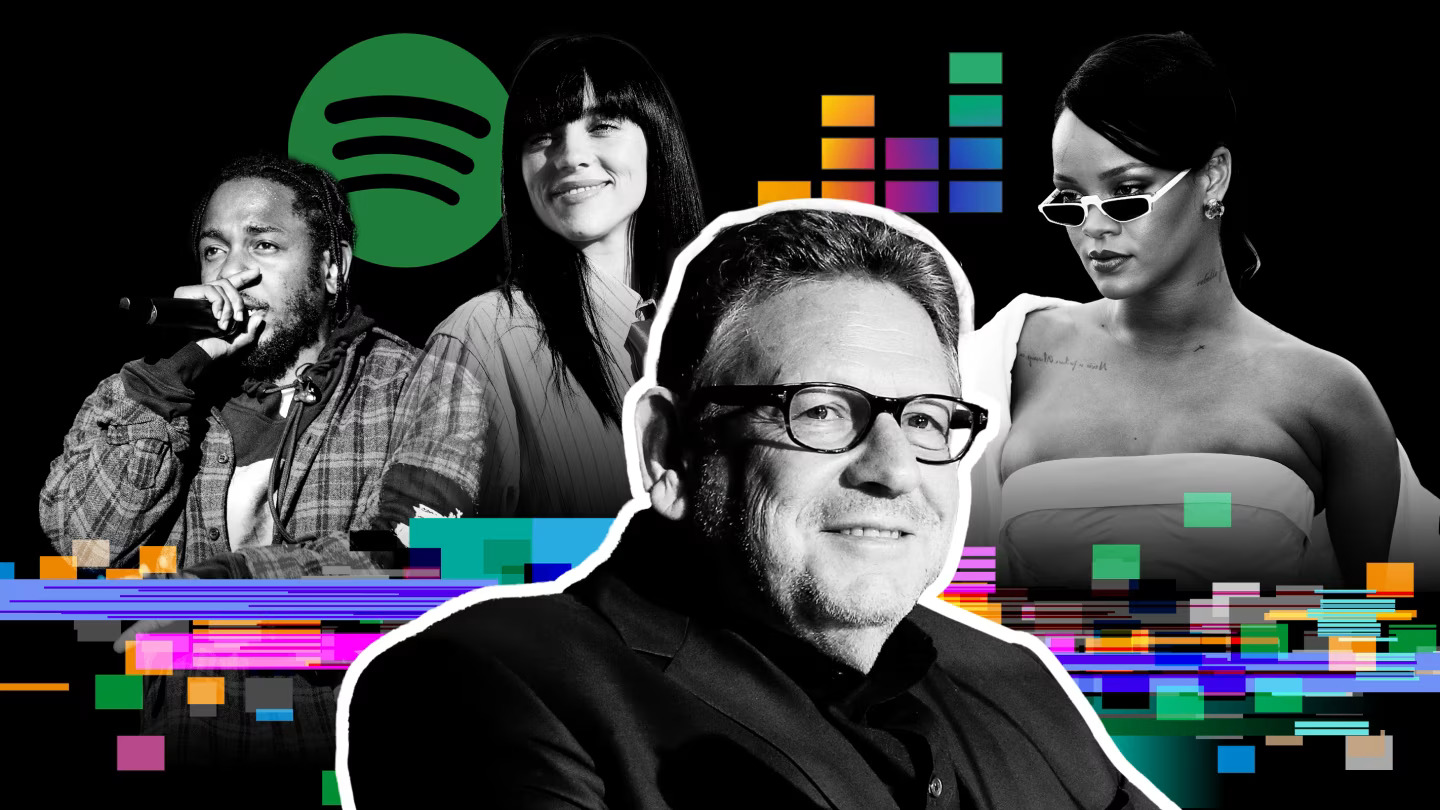Introduction
The music industry has changed a lot over the past few years, and social media has played a huge part in this shift. Artists, record labels, and fans now connect more easily thanks to platforms like Instagram, TikTok, Twitter, and YouTube. Social media isn’t just for sharing photos or videos—it’s become a key part of how music is made, shared, and listened to. In this article, we’ll explore how social media has impacted the music world and what that means for artists and listeners.
The Growth of Social Media in the Music Industry

Social media is no longer just a way for artists to talk to their fans it’s a major tool in creating and promoting music. In the past, radio and TV were the main ways to share music. But now, social media allows artists to release new music and updates instantly, directly reaching their fans. This has also made it easier for new artists to find an audience before even signing with a record label.
Key Platforms Shaping the Industry
- TikTok: This platform is known for its viral trends and challenges, which often help songs become popular quickly. A song that goes viral on TikTok can top the charts in no time.
- Instagram: Artists use Instagram to post photos, share sneak peeks of their music, and connect with fans. It’s also a great way to show personal moments and promote upcoming events.
- YouTube: YouTube remains the go-to platform for music videos and live performances. Artists upload their music and behind-the-scenes content for fans to watch whenever they want.
Social Media’s Role in Music Discovery
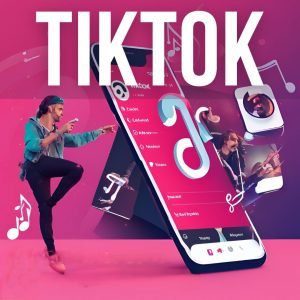
One of the biggest changes social media has brought to the music world is how people discover new music. Before, people would hear new songs mostly through the radio or TV. Now, thanks to social media, songs can go viral and be heard by millions of people across the world in just a few days. This has made it much easier for new and unknown artists to find an audience.
How Music Goes Viral
TikTok is one of the biggest platforms for making songs go viral. When people create videos set to a song, the song gets a lot of attention. This can quickly lead to the song becoming popular everywhere. The best part is that anyone can get noticed—even artists who aren’t signed to big record labels. If their music catches the attention of TikTok users, it can go viral.
Artists Can Connect Directly with Fans

Social media allows artists to talk directly to their fans. In the past, artists would have to go through a publicist or record label to communicate with their audience. Now, with platforms like Twitter, Instagram, and TikTok, musicians can post updates, answer questions, and even chat with fans in real-time. This closer connection makes fans feel more involved in an artist’s journey.
Building a Personal Brand
Social media also allows artists to build a personal brand. By sharing things like their daily lives, interests, and causes they care about, musicians can connect with fans on a deeper level. Fans now follow artists not only for their music but also for their personalities and lifestyles.
The Power of Music Marketing on Social Media

Social media has completely changed how music is marketed. Instead of relying on traditional methods like radio ads or magazine interviews, artists now use social media to hype up new releases. They can share teasers, post behind-the-scenes videos, and even preview songs to build excitement among their fans. Social media is also a great way for record labels to measure how well a song might do before its release.
Collaborations with Influencers
Influencers have become a key part of music marketing. These social media stars, who have huge followings, often team up with artists to promote their music. When an influencer shares a song, it can quickly get thousands or even millions of views. This helps new songs gain traction and become popular.
Making Money Through Social Media

Social media is also a great way for artists to make money. Musicians can earn money from sponsored posts, live-streamed concerts, or even special content offered to fans who pay for it. Platforms like Patreon allow artists to offer exclusive content in exchange for financial support, giving them more ways to make money directly from their fans.
Virtual Concerts
During the COVID-19 pandemic, virtual concerts became very popular. Many artists performed live on platforms like Instagram Live or YouTube, allowing fans from all over the world to watch. Even after the pandemic, virtual concerts continue to be a way for artists to connect with fans and make money from ticket sales or donations.
Social Media’s Impact on Music Genres
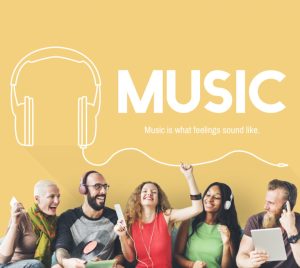
Social media has made it easier for people to find music in all kinds of genres, even those that aren’t mainstream. In the past, radio stations and record labels decided what music was popular. Now, fans are in charge of creating trends, and they’re often drawn to niche genres and subcultures that might have been overlooked before.
Mixing Genres
Social media has also encouraged artists to experiment with different genres. Musicians can combine elements of pop, hip-hop, rock, and electronic music to create something new. Fans often enjoy hearing new sounds, and this has led to more genre-blending and creativity in the music industry.
Connecting Artists and Fans in Real-Time

One of the best things about social media is that it lets artists connect with their fans in real-time. In the past, fans could only see their favorite artists on TV or hear them on the radio. Now, with platforms like Instagram and Twitter, artists can respond to fans directly. Whether it’s answering questions or sharing exciting news, social media allows for a closer relationship between musicians and their followers. This helps fans feel more involved and connected to their favorite artists.
Music Discovery is Easier Than Ever
Social media has made it easier for people to discover new music. Platforms like TikTok and YouTube allow fans to share songs with their friends and followers. If a song is good, it can quickly spread across the internet and reach millions of people. Artists who may not have been heard before can now find fans and grow their audience. This makes it easier for new genres of music and emerging artists to be discovered and appreciated by a wide audience.
Social Media Drives Music Trends
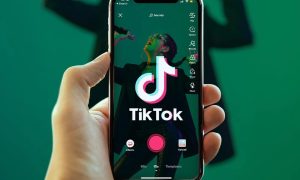
Social media is also a driving force behind many music trends. For example, TikTok often leads viral challenges that are set to specific songs. These challenges can make a song popular almost overnight. Artists who are part of these trends can see their music explode in popularity. Social media helps create a quick connection between music and trends, which is why songs from all genres can go viral. Fans play a big role in shaping these trends by sharing songs and creating videos that feature them.
Social Media Promotes Global Music Culture
Thanks to social media, music has become more global. Fans from different countries can listen to the same songs and share them with others. Artists from all over the world can now reach listeners in places they never could have before. This has helped break down cultural barriers, allowing music from one country or culture to become popular in another. Social media has created a global music community where fans can come together, share their love of music, and discover new sounds from around the world.
The Challenges of Social Media for Musicians
While social media offers many benefits, it also comes with challenges. One of the biggest problems artists face is the pressure to constantly create new content. Social media requires regular posts to keep fans engaged, and it can be exhausting to always come up with something fresh, even when an artist doesn’t have new music to share.
Fame Can Be Short-Lived
Social media also has a downside when it comes to fame. A song might go viral today, but tomorrow a new trend could take over, and fans might forget about the artist. This fast-paced environment means artists have to constantly stay relevant to maintain their success.
The Future of Social Media in the Music Industry
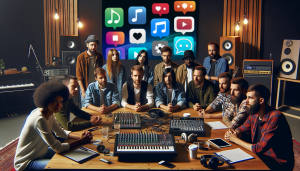
Social media will only continue to grow in importance for the music industry. As technology improves, new tools like virtual concerts, AI-driven music recommendations, and augmented reality in music videos will further shape how music is made and shared. Artists will likely keep finding new ways to connect with fans, and social media will remain a central part of the music world.
The Role of Technology
With advances in technology, social media platforms will be able to give fans more personalized music recommendations. This means artists will have more data to understand what their listeners want, making it easier to target specific groups of people and grow their fan base.
Analysis Table: The Impact of Social Media on the Music Industry
| Aspect | Impact of Social Media | Challenges | Opportunities |
|---|---|---|---|
| Music Discovery | Easier for fans to find new music, helps songs go viral | Too much content can make it hard to stand out | Chance for new artists to go viral quickly |
| Artist-Fan Engagement | Real-time communication, building personal brands | Pressure to post regularly | Stronger, more personal connections with fans |
| Music Marketing | Quick promotion, influencer partnerships, global reach | Too much competition for attention | New creative ways to market music |
| Monetization | Sponsored posts, virtual concerts, exclusive content | Earnings can depend on changing platform algorithms | New ways to earn money directly from fans |
Comparative Table: Social Media Platforms in Music Promotion
| Platform | Key Features | Best For | Challenges |
|---|---|---|---|
| TikTok | Short videos, viral trends | Quick music discovery, viral exposure | Pressure to keep up with trends |
| Photos, Stories, Reels | Connecting with fans, sharing behind-the-scenes | High competition for attention | |
| YouTube | Music videos, live performances | Full-length music videos, live streams | Algorithm changes can affect visibility |
| Text updates, quick posts | Real-time engagement, news updates | Fast-moving conversations, easy to miss posts |
Conclusion
Social media has completely changed how the music industry works. From discovering new songs to building stronger relationships between artists and fans, social media has given musicians new opportunities to promote their music and connect with listeners. While there are challenges, such as the constant need for fresh content, social media’s impact on the music world has been mostly positive. As the music industry continues to evolve, social media will undoubtedly play an even bigger role in shaping the future of music.

